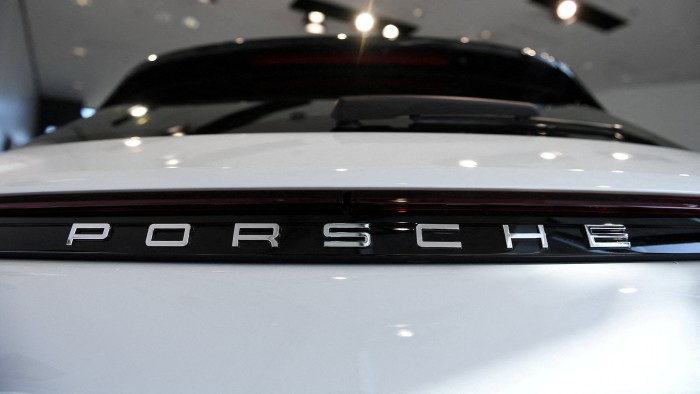Unlock the Editor’s Digest for free
Roula Khalaf, Editor of the FT, selects her favourite stories in this weekly newsletter.
German sports-car maker Porsche plans to overhaul its product portfolio to include more combustion engine and plug-in hybrid vehicles, putting additional strain on its already squeezed profit margins.
The Stuttgart-based carmaker said on Thursday night that the current year’s margins were expected to be between 10 and 12 per cent, well below its long-term target of 20 per cent. Further vehicle development and “battery activities” would add another €800 million in costs, it said.
The decision to increase spending on future combustion engine models came as worldwide deliveries to customers last year dropped by 3 per cent against the previous year. The declines were driven by a 28 per cent slump in China, where consumers were not convinced by its electric Taycan.
Last weekend, the company announced it was in talks about prematurely ending the contracts of chief financial officer Lutz Meschke and Detlev von Platen, Porsche’s head of sales and marketing.
The move is partly a result of concerns over Porsche’s focus on electric cars and sliding sales, according to people familiar with the discussions. However, it is also an effort to resolve a power struggle between Meschke and chief executive Oliver Blume, who also leads parent company Volkswagen.
In a separate statement on Thursday night, Porsche SE — the investment vehicle of VW’s majority owner, the Porsche-Piëch family — said a previously announced writedown of its stake in Porsche would be more than twice as large as expected, reaching a range of €2.5bn-€3.5bn.
The family, led by Wolfgang Porsche, who chairs the supervisory boards of Porsche AG and Porsche SE, has grown increasingly concerned about the simmering crisis at VW and the sports-car maker that bears its name. The family depends on dividends from the two companies.
As of December, the investment vehicle had a net debt position of €5.2bn partially built up as it acquired a stake of 25 per cent plus one share in the carmaker’s voting stock when it listed in 2022.
Read the full article here




